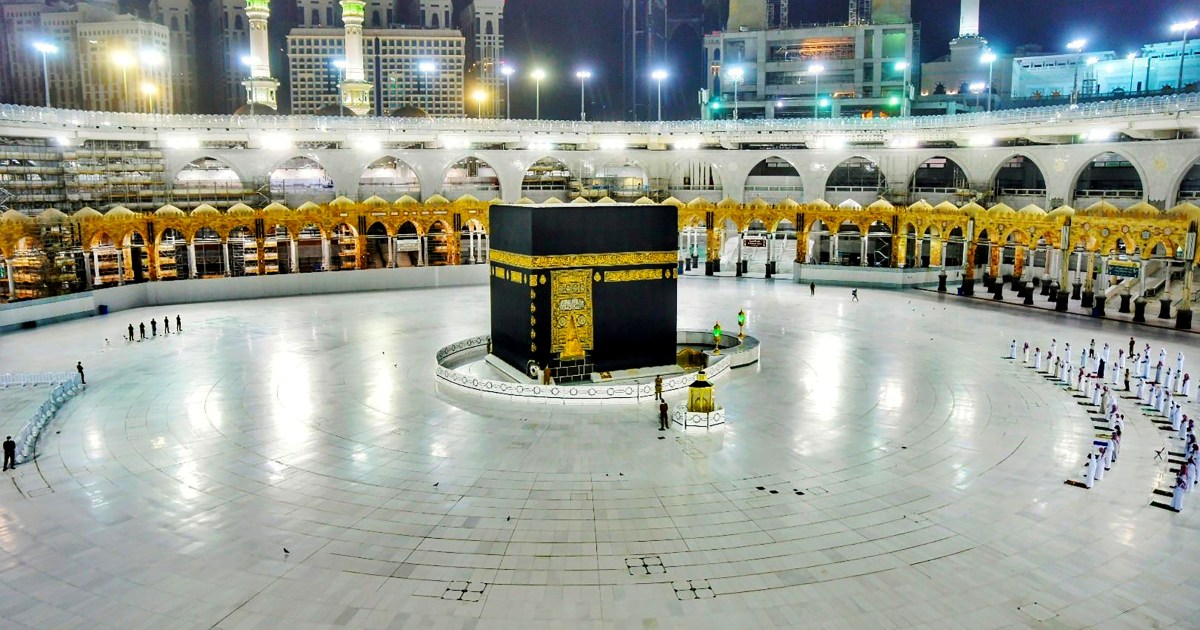About 10,000 pilgrims were chosen to perform the pilgrimage, in a process that many described as unclear, as the Saudi authorities initially announced that the number of people who would perform the rites would be only one thousand, due to the outbreak of the new Corona virus; The decision caused many disappointments, while some questioned: Have some places been designated for diplomats, businessmen and princes?
For the first time in modern history, millions of pilgrims from outside Saudi Arabia will not participate in the rituals of Hajj, due to fears of the virus, knowing that 2.5 million people performed rituals in 2019.
A Jordanian engineer and his wife, who resides in Saudi Arabia, cried with joy after choosing from a few who will participate in the Hajj pilgrimage this year, which is decided to be held in very limited numbers against the background of the threat of the Corona virus.
Many residents within the Kingdom applied to register for the Hajj. Saudi officials say they have received applications from more than 160 nationalities, and about 10,000 applicants have been chosen to perform the rites in a process that many described as unclear, as the authorities initially announced that the number of those who would perform the rites was only 1,000.
The decision disappointed many who were hoping to perform the duty.
"With this large number of applicants, we did not have a 1% chance to choose," said the 29-year-old Jordanian engineer, who lives in the Saudi capital, Riyadh, with his wife working in the health field. He continued, "We were shocked and happy" when the news of their selection arrived.
Anger and envy
The Jordanian engineer, who preferred to remain anonymous, confirmed that he felt compelled to cancel his post on social media, in which he announced his choice to perform the Hajj this year; Fearing the anger and envy of many of those whose requests were rejected.
For his part, the Nigerian Nasser is delighted after his choice to participate in the performance of the Hajj, explaining "I had a golden ticket" after agreeing to the request to perform the Hajj. "This feeling cannot be described openly," he added.
The Kingdom had previously announced that only about a thousand people would be allowed to perform the Hajj this year, but local media reported that the numbers would rise to about ten thousand.
The decision caused disappointment for millions of Muslims, who often spend their savings traveling on pilgrimage, and some are waiting for many years to obtain approval from their own and the Kingdom's authorities for the Hajj.
The Saudi Ministry of Hajj has received a flood of inquiries via Twitter from many of those whose applications have been rejected this year.
A woman posted a photo on Twitter to reject her request this year, asking: "I did not refuse without giving reasons," adding, "Unfortunately, all around me were rejected."
Very opaque
Two widows - one Nigerian and one Egyptian - were angry that their requests had been rejected, and they speculated that the reason for not choosing them was that they did not register a mahram (i.e. a relative of men to accompany them), while others asked: Have some places been reserved for diplomats, businessmen, and princes?
The Ministry of Hajj and Umrah said earlier that the percentage of non-Saudis residing inside the Kingdom is 70% of the total pilgrims this year, and the proportion of Saudis is only 30%.
The ministry confirmed that the participants in the duty of the Saudis will be limited to "health practitioners and security men recovering from the emerging Corona virus."
A Twitter user - who said he had recovered from and recovered from the coronavirus - complained of not being chosen, saying, "I am a health practitioner and have had Corona (...) I have never had a pilgrimage, and I do not know why I have not been accepted."
"The Saudi authorities have kept the selection process very vague, as it is a sensitive issue," said Omar Karim, a visiting researcher at the Royal Institute for United Services.
According to Karim, "Keeping (the selection mechanism) hidden from public scrutiny comes to avoid making a noise about who was chosen and who rejected his request."
And the decision to limit the numbers of pilgrims was issued at a sensitive time for the Kingdom, as the oil state is struggling for the low crude prices that have reduced revenues, while the world is preparing for an economic recession due to the measures to reduce the Corona virus.

